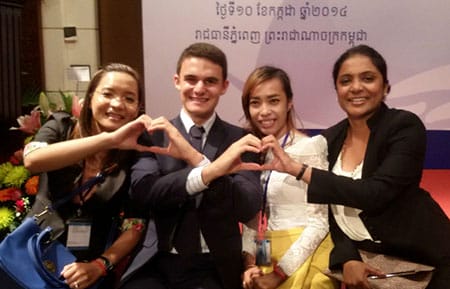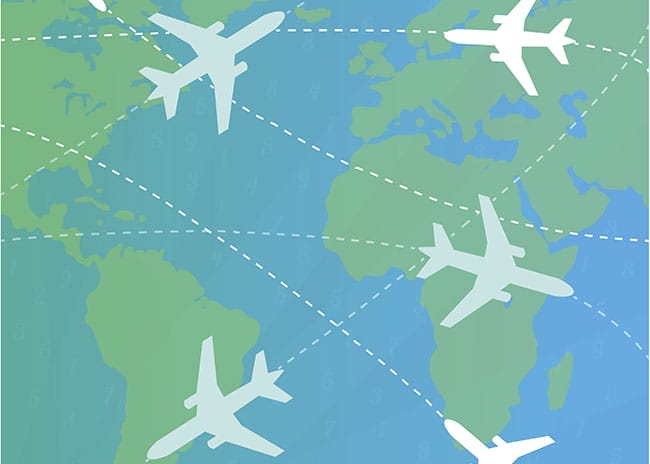Shortly after graduating in 2012, I submitted a Wharton Entrepreneurship Blog post that captured my enthusiasm for pursuing a road less traveled and encouraged other aspiring entrepreneurs to take advantage of the universe of opportunities available. Two years later, I’m back to share some relevant findings from my entrepreneurial journey around so far:
Small Ties are Extremely Powerful.
I had been learning my tail off at Host Committee in NYC when a friend from undergrad asked if I wanted to catch up one afternoon. We had only met towards the very end of senior year, but we had a couple of mutual connections and shared a strong interest in entrepreneurship and international affairs. Who would have thought that single conversation over coffee would lead to booking a one-way flight to Amritsar, India?
There, I would assist with the development of his startup, VenturePact, take classes and lecture at a local university, and explore the vibrant country. This diversity in experience did wonders to enhance my skill set and global business acumen, not to mention broadening my outlook on the world. All from one coffee meet-up with an old classmate I did not know very well at the time. Sometimes small ties–the people with whom we are only peripherally connected–can offer us the grandest of opportunities.
Your Network Extends Well Beyond the Northeast Corridor.
All grads should have the confidence to be able to go anywhere in the world and secure work. For instance, I don’t personally know anybody in Vietnam, but if I were fascinated by opportunities in this roaring emerging market, using Facebook Graph Search to find “people who live in Vietnam” returns over 100 individuals who I have mutual friends with. I can view their alma mater, current employer and reach out to these local experts with any and all questions.
And that’s exactly what I did on a visit to Singapore–leveraging everything from WhartonConnect and regional events to resources like EscapeTheCity.org and CouchSurfing.org. The friends and professional contacts I made in a short span of time led to a dream job with Bima Mobile in Indonesia.

Andrew Dunn and his co-workers at a Bima Cambodia launch event
Experience Abroad Will Accelerate Your Career.
It’s not surprising that developing countries are in need of foreign talent to build their economies. This means educated expats can assume senior level roles without as much in-depth experience, which is what happened to me after a couple of months on the ground in Indonesia. I was promoted to general manager of Cambodia, where I took on responsibilities far beyond what I would be eligible to perform in the U.S.: managing a national product launch, setting up a telesales call center, and working with the Ministry of Economy and Finance. It was a challenging yet enriching combination of cultural immersion, intense operations and purpose-driven work. Furthermore, upon returning stateside I found that prospective employers placed tremendous value on what I had pursued and accomplished overseas.
Long-term Travel Can Be Highly Productive.
What I’m most proud of this past year is following my instinct to combine a passion for travel with experiences that would yield significant professional and personal growth. Call it “power vagabonding.” Understanding other people and cultures, how the world works and different ways to figure it all out are insights and qualities that I’ve been able to absorb and use to further my career. It’s a win-win-win if you’re up for the challenge. I just can’t wait for what comes next.
The digital age has opened up a world of possibilities for ambitious young adults, dramatically reducing the barriers to finding meaningful work across industries and geographies. In his book Springboard: Launching Your Personal Search for Success, Wharton’s Thomas Gerrity Professor G. Richard Shell encourages us to take an honest look inside and then answer two questions:
“What, for me, is success? How will I achieve it?”
With your network, resourcefulness and curiosity, it has never been as possible and accepted to take risks and try something different. This is just one way of doing it.
Editor’s note: The original version of this article appeared on the Wharton Entrepreneurship blog on Dec. 23, 2014.

























